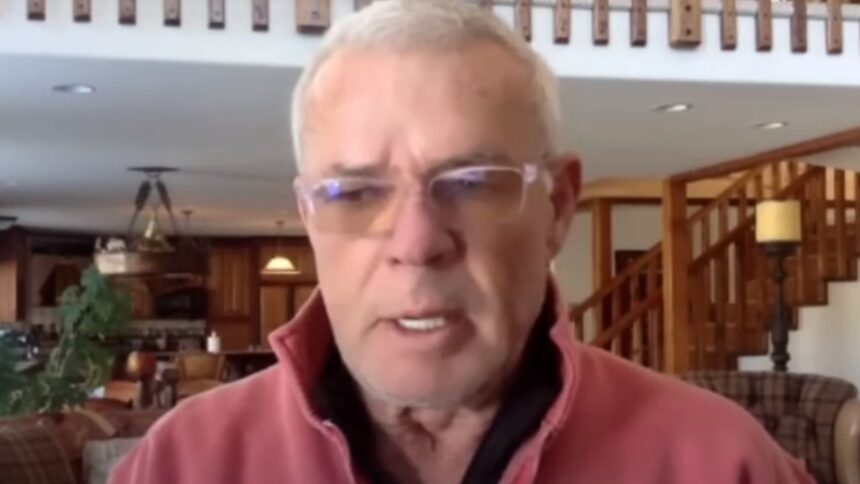Every time WWE hosts an event in Saudi Arabia, it stirs significant attention due to the controversial partnership. WWE Hall of Famer Eric Bischoff, who had first-hand experience organizing these shows during his brief tenure as Executive Director of “WWE SmackDown,” recently shared his insights from a booking perspective on his podcast “83 Weeks.”
“When I was there in 2019, I think I had to deal with either one or two Saudi shows,” Bischoff recalled. “It was the most painful experience I’ve ever been through professionally, in terms of trying to accomplish something. There was no rhyme or reason to it. On one hand, you’re trying to satisfy the Saudis, because they have their own ideas about what they want to see — and by the way, they’re writing a $50 million check, so they get a vote… So, now you’ve got the Saudis over here, kind of casting their votes for what they want to see. You know you’ve got to put some of what the Saudis want to see on television, but sometimes it was in contrast to the stories you were telling for your domestic pay-per-views. So, it was kinda like trying to satisfy three different bosses who wanted three different things.”
Bischoff’s comments highlight the challenging dynamics between creative control and fulfilling contractual obligations to the Saudi partners. These events often clash with WWE’s ongoing storylines, leading to a product that Bischoff describes as less compelling.
Stories have circulated about how hands-on the Crown Prince of Saudi Arabia has been with WWE’s booking decisions. One notable anecdote involves the Crown Prince reportedly wanting Yokozuna to appear at an event, not realizing the legendary wrestler had passed away. Another incident involved the Prince paying boxer Tyson Fury a hefty sum to wrestle, and another bizarre request saw a sumo wrestler brought in to replace Yokozuna. The Crown Prince even offered Hulk Hogan $1 million just to make an appearance, underscoring the extravagant and often unpredictable nature of these events.
“The creative leading up to these shows just doesn’t seem to have the same pizzazz,” Bischoff noted. “It’s just not quite as compelling; still compelling, but it doesn’t feel as focused.”
The 2019 Crown Jewel event stands out as a particularly chaotic chapter in WWE’s Saudi dealings. Several WWE talent were left stranded in Saudi Arabia due to a delayed flight, leading to widespread frustration and unease among the wrestlers. This incident fueled further scrutiny and criticism of WWE’s partnership with Saudi Arabia, emphasizing the complex and often fraught nature of these events.
Bischoff’s reflections offer a rare behind-the-scenes glimpse into the logistical and creative hurdles involved in producing WWE’s Saudi shows. His experiences echo a broader sentiment among wrestling fans and industry insiders who question the impact of these high-profile, high-stakes events on WWE’s overall product and storytelling.
While the financial benefits of the Saudi partnership are undeniable, Bischoff’s account underscores the significant challenges and compromises that come with it. The tension between satisfying a lucrative international partner and maintaining narrative cohesion in WWE’s primary markets remains a delicate balancing act.




